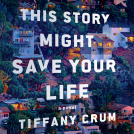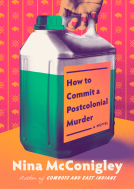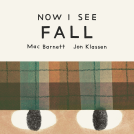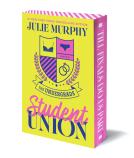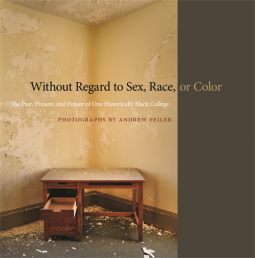
Without Regard to Sex, Race, or Color
The Past, Present, and Future of One Historically Black College
by Andrew Feiler
This title was previously available on NetGalley and is now archived.
Send NetGalley books directly to your Kindle or Kindle app
1
To read on a Kindle or Kindle app, please add kindle@netgalley.com as an approved email address to receive files in your Amazon account. Click here for step-by-step instructions.
2
Also find your Kindle email address within your Amazon account, and enter it here.
Pub Date Oct 01 2015 | Archive Date Aug 18 2015
Description
This gathering of sixty images, along with the essays that frame them, gives us a new way to think about the too often troubled status of historically black colleges and universities (HBCUs). The bell in the clock tower at Atlanta’s Morris Brown College bears an inscription about the ideal of educational access, that it be “without regard to sex, race, or color.” Yet most of the Morris Brown campus has lain silent for more than a decade. Established in 1881, it was all but shut down in 2002 after years of fiscal hardship were capped by a mismanagement scandal. Pride still runs high among its alumni, however, and its current leadership vows to revive the school. Meanwhile, as Andrew Feiler’s stirring photos show, Morris Brown is literally falling apart.
In the spirit of those photographers who have documented the physical decline of our valued institutions—from small family farms to entire cities—Feiler points his lens at one embattled place and dares us to look away. Aiming to “open minds, trigger emotion, stimulate discussion, and, perhaps, prompt action,” his images project a new layer of meaning onto the Morris Brown story. We see classrooms, dorms, gym facilities, and other spaces no longer alive with students, faculty, and staff but rather mired in a state of uncertainty where hopes of normality’s return mutely battle a host of unwelcome alternate futures. We see how time passes without regard for academic years, regular maintenance cycles, or the other comings and goings that would ordinarily call attention to the leaks, invading animals, acts of vandalism, and other forces working to peel the paint from Morris Brown’s walls, buckle its floors, and molder its furnishings. We see garbage piling up alongside sports trophies, scientific equipment, and other vestiges of the prouder past we would rather remember.
Feiler’s photos are accompanied by writings that address the college’s profound impact on one family, history and memory, the documentary and narrative powers of photography, and the place of HBCUs in American public life. Images and text combine powerfully to show us what happens when a place meant to be honored is left to its own.
A Note From the Publisher
With Essays by Robert E. James, Pellom McDaniels III, Amalia K. Amaki, and Loretta Parham
Andrew Feiler, a fifth-generation Georgian, is an award-winning photographer whose work has been featured in museums, galleries, and magazines and is in a number of private collections. His photography is focused on the contemporary complexities of the American South. More of his photography can be seen at andrewfeiler.com.
Robert E. James is a Morris Brown College alumnus, a former member of the Morris Brown board of trustees, and president of Carver State Bank in Savannah, Georgia.
Pellom McDaniels III is faculty curator of African American Collections at Emory University’s Woodruff Library and an assistant professor of African American studies. He is the author of The Prince of Jockeys: The Life of Isaac Burns Murphy.
Amalia K. Amaki is an artist, writer, curator, and critic who has served as professor of art history and visual studies at Spelman College, University of North Georgia, University of Delaware, and University of Alabama. She is the author of (with Andrea Barnwell Brownlee) Hale Woodruff, Nancy Elizabeth Prophet, and the Academy.
Loretta Parham is CEO of Atlanta University Center’s Woodruff Library
Advance Praise
—Brett Abbott, Keough Family Curator of Photography and head of collections, High Museum of Art
“Andrew Feiler’s photographs put into perspective Morris Brown College’s
great legacy and history; they give a glimpse of what once was and,
more importantly, offer a vision of what can be. The photographs convey a
sense of rough edges, of incompleteness, reminding me of an unpolished
stone. They inspire me to want to make a difference, and I hope they
will motivate others to be a part of our transformation.”
—Stanley Pritchett, eighteenth president of Morris Brown College
Available Editions
| EDITION | Other Format |
| ISBN | 9780820348674 |
| PRICE | $32.95 (USD) |
Links
Average rating from 7 members
Featured Reviews
 Kennedy P, Librarian
Kennedy P, Librarian
I requested this book because I was familiar with Morris Brown. As a student who graduated from the University of Georgia in 2002, I remember hearing about Morris Brown's troubles. (Honestly, I was a bit surprised that it still exists.) I I enjoy books of old abandoned places and thinking about the what might have been or what was. I found this story sad, but perhaps indicative of the changes in higher education that are happening including the proposed closure of all-women Sweet Briar College. In an era of continued prejudice and discrimination, the closing of a HBCU deserves special attention.
 Karen O, Reviewer
Karen O, Reviewer
Without Regard to Sex Race or Color is a photographic essay about Morris Brown College, a historically Black college that closed due to financial mismanagement in 2002 after a long and proud history of educating primarily Black students from 1881 and on. Although this book is focused on Morris Brown College, to me, it is also about the triumphs and struggles of HBCU's (historically Black colleges and universities) to offer excellent educational opportunity in a democratic society when Blacks and other marginalized groups were left out. Andrew Feilers heartbreaking photographs show us what happens when decades of neglect and decay set in. When I look at them I see two seemingly diametrically opposed visions for Morris Brown College. On one hand it reminds me of the photographs of ruins that I have recently looked at, especially of Detroit and other cities that have been abandoned without regard to those that live there. On the other hand, in many photos I also see a possible hopeful future as I view the beautiful remains of some classrooms, hallways and structures. My hope is that Morris Brown College can be revived and once again become the vital institution that it once was.
Thank you Netgalley for allowing me to review this book for an honest opinion.
I requested this book because as a photographer, I love photographic explorations with stories behind them. Living in Metro Detroit, there are a lot of abandoned schools, churches, etc. around and I've always been interested in the history behind them. Without Regard to Sex, Race, or Color was an excellent exploration of Morris Brown College as well as other HBCUs. With such a rich history, hopefully Morris Brown will re-emerge once again, similar to how Cass Tech HS has in Detroit. The photographs were touching, poignant and well executed. I would definitely recommend this book for those interested in Morris Brown College, HBCUs and anyone that loves photography with a story behind it.
Readers who liked this book also liked:
L.M Montgomery
Children's Fiction, Comics, Graphic Novels, Manga, Teens & YA
Nina McConigley
General Fiction (Adult), Literary Fiction, Multicultural Interest
Julie Murphy; Sierra Simone
General Fiction (Adult), New Adult, Romance
